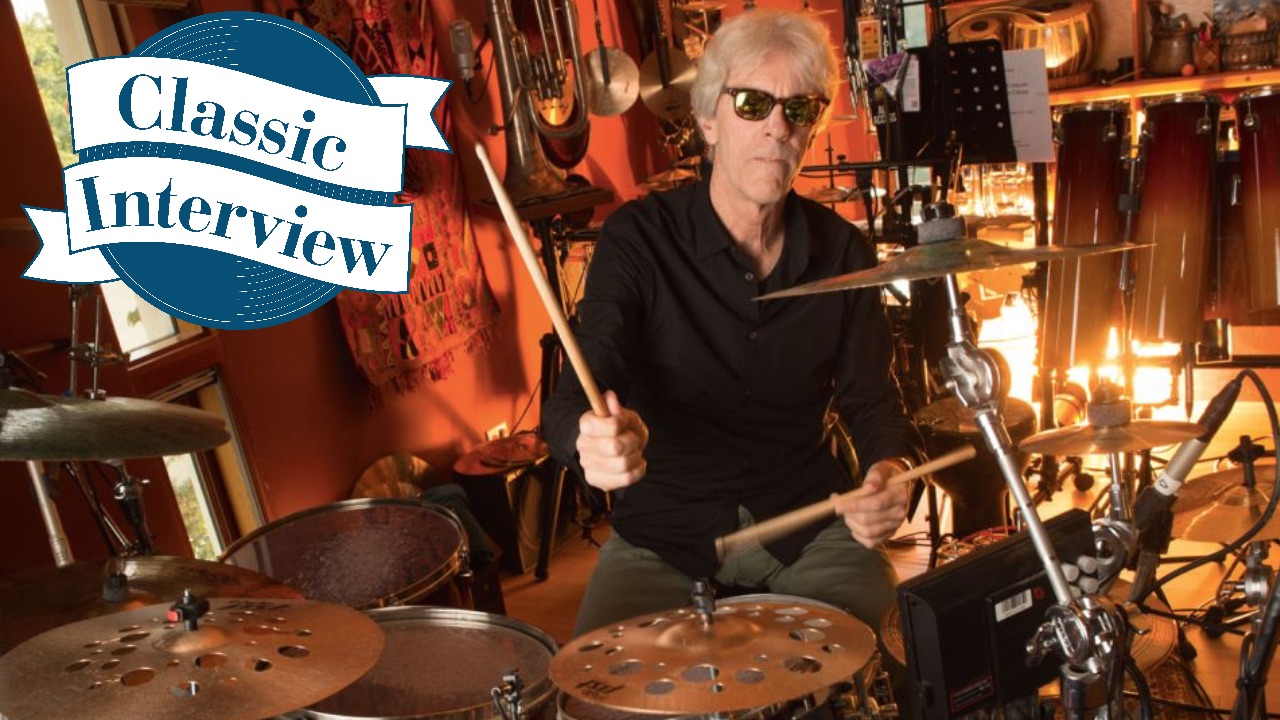
Want all the hottest music and gear news, reviews, deals, features and more, direct to your inbox? Sign up here.
You are now subscribed
Your newsletter sign-up was successful
In a new interview with Mojo, Sting has elaborated on what caused the Police's split in 1984 and suggested being in a young person's game – ideally teenagers.
“I don’t think any grown man can be in a band, actually,” Sting told the magazine in a wide-ranging chat. “A band is a teenage gang. Who wants to be in a teenage gang when you’re knocking 70? It doesn’t allow you to evolve.”
As much as I love the Stones and AC/DC, it’s hard to see growth in their music
Tell that to Mick Jagger. But the remark is all the more curious in spite of the fact Sting enjoyed commercial success as part of a band relatively late; The Police were at their peak when he he was in his early 30s in the first half of the 1980s.
“You have to obey the rules and the gestalt of the band," the musician continues. "As much as I love the Stones and AC/DC, it’s hard to see growth in their music. For me, the band was merely a vehicle for the songs and not the other way around."
Now that is an interesting point – something he's alluded to before when discussing his decision to go solo with The Dream Of The Blue Turtles after the Police split in 1984 when they were at the height of their powers.
My frustration was I would have written an album's worth of material but also had to entertain these others songs that were not as good
"I just wanted a larger Palette," Sting explained to Rick Beato earlier this year. "The three-piece is a wonderful vehicle but it's limited; drums, bass and guitar. I think we achieved an amazing amount of stuff in the short time we were together. Very unique, but I just wanted a broader palette because I was song-driven and not necessarily band-driven."
But he's even more candid about the shift in the Mojo interview…
Want all the hottest music and gear news, reviews, deals, features and more, direct to your inbox? Sign up here.
"For me the essence of music is surprise," he says. "When I listen to music if I'm not surprised within eight bars I move on. Maybe 16."
Sting repeats in the interview that it was songwriting that ultimately lead to the split between himself, drummer Stewart Copeland and guitarist Andy Summers in The Police, but he goes into a different level of metaphorical detail.
"My frustration was I would have written an album's worth of material but also had to entertain these others songs that were not as good. Explaining to someone why their song isn't working is a bit like saying their girlfriend's ugly. It's a very personal thing. That pain was something I did't want to go through any more.
Nevertheless, the trio had a lucrative reunion with a world tour in 2007/2008 with no regrets… though some old issues started to surface.
"I said no, no, no, no. no on numerous occasions but I thought my timing was impeccable," Sting told Mojo. "Any later I think would have been wrong. Any sooner would have been wrong. It was cashing that asset in, saying, 'Let's do it one more time and see what happens.' It was hugely successful but I wouldn't do it again. That would be a bridge too far."
"I mean it was hard because the power struggles were still apparent," he adds later. "but we got through it and people loved it, they really did."
Sting on the Beatles: "They conquered the world with their own songs, and therefore gave permission to a younger generation to try the same thing"

Rob is the Reviews Editor for GuitarWorld.com and MusicRadar guitars, so spends most of his waking hours (and beyond) thinking about and trying the latest gear while making sure our reviews team is giving you thorough and honest tests of it. He's worked for guitar mags and sites as a writer and editor for nearly 20 years but still winces at the thought of restringing anything with a Floyd Rose.
